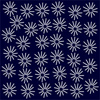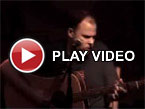Tomas Korber, "Effacement"
 Effacement is quite a divergence,and I think an improvement, on the work I’ve heard from Korber. Like so many Swiss and Viennese before him,Korber is most easily lumped in the microsound category: digital music rifewith microscopically-distanced sound fragments and closed silences, though lesspulverized towards a glitchist all-over-ness than instead dissected andlaboriously sutured into a celebration of nuance, the notes of the noise ratherthan the noise between the notes.
Effacement is quite a divergence,and I think an improvement, on the work I’ve heard from Korber. Like so many Swiss and Viennese before him,Korber is most easily lumped in the microsound category: digital music rifewith microscopically-distanced sound fragments and closed silences, though lesspulverized towards a glitchist all-over-ness than instead dissected andlaboriously sutured into a celebration of nuance, the notes of the noise ratherthan the noise between the notes.Past Korber releases, like his last Cut title, Momentan Def. or the MassProduction CD-R from last year, tend toward denser soundfields: up-frontfeedbacking, clustered guitar wranglings, or machine drones and rhythm trackscreating relatively lush environments that, despite their abstract tensions,always struck me as kind of soothing.
This new composition, one of the young artist’s few solo releases, isproduced with a depth of field as great as anything of Korber’s I’ve heard, butwith compositional structures reduced to contrastively minimal degrees wheremore often one formal constraint alone guides each of the six tracks, ordivisions, for its full length. Thepalette is a familiar lattice of motorik clicks and whirrs, banks of surfacenoise, and pristine guitar playing, but these come now to a point of refinementwhere easy blending makes a never-gratuitous display of extremes possible. Korber’s guitar sounds more like a guitarthan on any of my other listenings, shaken into amp-quaking, almost earthyovertones, but with a brilliant restraint that somehow keeps the moody distanceof the mix’s softer parts intact. The interplaybetween soft and penetratingly loud, organic and synthetic, up-front orimmersed, creates quite an addictive drama within such a sparse andunidirectional composition.
The process of Effacement calls tomind the consciousness of a surface left behind, an essence whose importance isderived by its own lacking. And whilethis is a concept that surrounds all artistsdealing this heavily in silence and super-small sound bits, I find in Korber’splay of extremes a method of engagement potent both in its theory and itsaesthetic The end result I think ismusic that sounds more in place,certainly more tangible than most else in its immediate genre. It is not at all improv, but shares theaccess and the excitement of that kind of setting.
samples:



